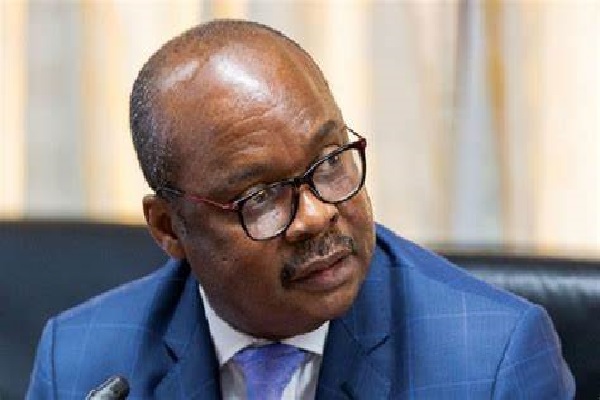
Debt crisis hits hard at banks in 2022 — Returns to profitability in Q1
The recently concluded domestic debt exchange programme (DDEP) has hit hard at the banking industry, with 16 out of the 23 universal banks operating in the country recording significant losses for the 2022 financial year.
Although five banks recorded profits in the year under review, the profits recorded was a huge decline from what they recorded in 2021.
The National Investment Bank (NIB) is yet to release its 2022 audited financial results.
A Graphic Business analysis of the 2022 financial results of 22 out of the 23 banks showed that Consolidated Bank Ghana was the hardest hit, recording losses to the tune of GH¢1.5 billion in the year under review. This was followed by CAL Bank, GCB Bank, ABSA and Zenith Bank, who recorded losses of GH¢809.8 million, GH¢555.7 million, GH¢429.16 million, and GH¢419.7 million respectively.
Fidelity Bank, ADB, Prudential Bank, First National Bank, and Access Bank Ghana completed the list of the top 10 most affected, recording losses of GH¢388.5 million, GH¢371.2 million, GH¢357 million, GH¢340.4 million, and GH¢338.1 million respectively.
Ghana’s economy has been faced with a myriad of challenges ranging from high inflation, which hit a 22-year high of 54.1 per cent in December 2022, and an unsustainable public debt of GH¢575.7 billion.
This prompted the country to seek help from the IMF in July last year and although the government was able to reach a staff-level agreement with the fund in December last year, a board-level approval, which will pave the way for the disbursement of the US$3 billion support, is hinged on the country’s ability to restructure both its domestic and external debt.
Although the domestic debt exchange programme had been concluded and described as a success by the Ministry of Finance, there have been fresh talks, in recent times, of a possible second round of domestic debt restructuring.
However, what is holding the country back from reaching an agreement with the IMF is the restructuring of the country’s external debt. So far, the Paris Club, the United States (US) and other bilateral creditors of the country have expressed their willingness to restructure the country’s debt. Standing in the way now, however, is China, which is still playing hardball.
A March deadline earlier announced by the government to reach an agreement with the fund had already elapsed and at the recent World Bank/IMF Spring Meetings in Washington DC, sources close to the IMF hinted that the country was likely to get a programme by May this year.
The debt restructuring programme which saw the participation of all the 23 banks forced the banks to set aside huge amounts of money as impairment losses and this is what has led to majority of the banks recording losses in 2022.
In its March 2023 Monetary Policy Committee release, the Bank of Ghana indicated that developments in the banking sector broadly reflected the challenging operating environment in 2022 on account of macroeconomic conditions, and the recent implementation of the DDEP.
The BoG’s preliminary assessment of the impact of the DDEP on the banking sector, based on December 2022 data, indicated significant losses on account of impairment of banks’ holdings in GoG bonds.
Dire situation
In an interview with the Graphic Business, Banking Expert and Consultant, Dr Richmond Atuahene, said the sector was in a dire situation, as the losses and drop in capital of the banks would affect credit to industry and also limit the banks’ international trade.
He said the banks have been constrained by the losses which would cause credit to industry to dip. “Industry will not enjoy the credit facility they used to enjoy because if a bank has no capital, it will very difficult to continue to lend money.”
“What even makes it dangerous is the fact that all these banks have corresponding international banks and once your capital goes down, your corresponding bank will no longer do business with you,” he stated. He added that if the affected banks were not capitalised immediately, it was going to be difficult for them to do international trades.
Stability fund
Dr Atuahene urged the Bank of Ghana to quickly operationalise a stability fund that would support banks whose capital have been affected.
“The stability fund should not be for liquidity but for solvency. Those whose capital have fallen below the requirement should be supported immediately.”
“The liquidity may not be a problem but the solvency is and the BoG must therefore act fast,” he advised.
2023 looking good
Despite the difficult 2022, 2023 first quarter unaudited results of the banks look good, showing an indication of a return to profitability.
Apart from First National Bank who recorded a loss of GH¢7.8 million in the first quarter of 2023, all the other banks recorded profits.
Standard Chartered Bank Ghana recorded the highest profit of the GH¢296 million, followed by ABSA with GH¢256.8 million.
Stanbic Bank Ghana, Zenith Bank and GCB Bank recorded profits of GH¢234.3 million, GH¢217.3 million, and GH¢190.4 million respectively to complete the list of top five banks in terms of profit